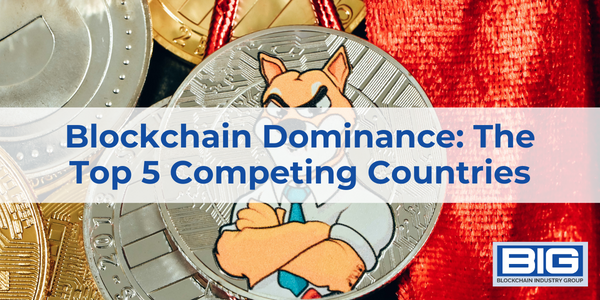
As the use of blockchain technology continues to expand and mature, a number of countries are positioning themselves as leaders in the field. From supportive government policies and strong infrastructure to a thriving startup ecosystem and talented workforce, these five countries stand out as top contenders for blockchain dominance.
1. United States
One of the main reasons the United States is a leading player in the blockchain space is the sheer size and depth of its tech sector. Silicon Valley is home to some of the world’s most innovative and successful tech companies, and the country has a long history of fostering entrepreneurship and supporting the growth of new technologies.
In addition to its strong tech sector, it can be argued that – because there is no clear guidance – the U.S. has a favorable regulatory environment for blockchain. The country’s Securities and Exchange Commission (SEC) has taken a “wait-and-see” approach to regulating initial coin offerings (ICOs), allowing for innovation to mostly proceed apace.
However, the U.S. is not without its weaknesses in the blockchain race. One major challenge is the country’s patchwork of state-by-state regulations, which can make it difficult for companies to navigate and operate nationwide. In addition, the U.S. faces fierce competition from other countries, particularly in the areas of cryptocurrency and decentralized finance (DeFi).
2. China
China has emerged as a major player in the blockchain space in recent years, thanks in part to the government’s proactive support for the technology. In 2019, President Xi Jinping endorsed blockchain as a “core technology” and called for the country to take a leading role in its development. Since then, the government has invested heavily in blockchain research and development, and has taken steps to encourage the adoption of blockchain in various industries.
One of China’s key strengths in the blockchain race is its large and talented workforce. The country is home to many top-tier tech universities and has a strong tradition of technical education. This, combined with the government’s support for blockchain, has helped to create a thriving ecosystem of startups and established companies working on blockchain projects.
However, China’s dominance in the blockchain space is not without controversy. The country’s strict censorship laws and lack of privacy protections have raised concerns about the potential for abuse and the use of blockchain for nefarious purposes. In addition, China’s reliance on a centralized and controlled internet has led to concerns about the scalability and decentralization of its blockchain projects.
3. Singapore
Singapore has established itself as a hub for blockchain and cryptocurrency activity in Southeast Asia and beyond. The country has a strong and stable economy, with a highly educated and technologically savvy population. In addition, the government has taken a proactive approach to supporting the development of blockchain and related technologies.
Intro to Real-World Blockchain Applications
—
Introduction: Blockchain Gas and Transaction Fees
—
Key Features and Benefits of Block Chain
One of the main reasons Singapore is well-suited for blockchain is its favorable regulatory environment. The government has taken a hands-off approach to cryptocurrency and has implemented clear and straightforward rules for ICOs. This has helped to create a sense of predictability and stability for companies operating in the blockchain space, making Singapore an attractive location for startups and established firms alike.
One potential weakness for Singapore in the blockchain race is its relatively small size and market. While the country has a strong reputation as a financial hub, it may struggle to compete with larger and more established players in the blockchain space.



